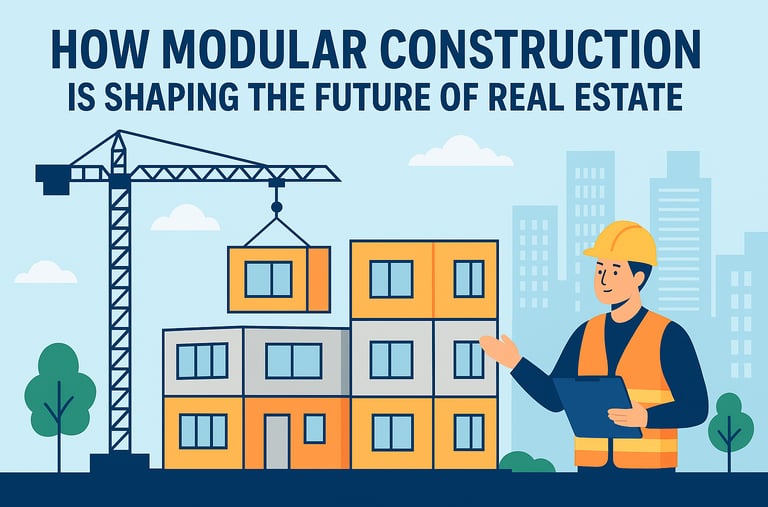How Modular Construction Is Shaping the Future of Real Estate
The construction industry is evolving rapidly, and modular construction is at the heart of this transformation. Unlike traditional building methods, modular construction involves manufacturing sections of a building off-site in controlled factory settings and then assembling them on-site. This innovation is changing the way developers approach timelines, costs, and sustainability.
10/8/20251 min read
One of the biggest advantages of modular construction is speed. Since modules are built simultaneously with site preparation, projects can be completed up to 50% faster compared to conventional methods. This is crucial in urban hubs like Mumbai, where delays often inflate costs.
Quality is another driving factor. Factory-built modules ensure consistent standards, precise measurements, and fewer defects. With automation and advanced technology, modular construction produces homes that are not only structurally sound but also energy-efficient.
Sustainability benefits are equally significant. Off-site construction reduces material waste and optimizes resources, making it a greener alternative. For buyers who are conscious about eco-friendly living, modular homes are a strong value proposition.
Developers are embracing modular techniques for residential towers, affordable housing, and even luxury projects. The flexibility in design and scalability makes it suitable for diverse projects.
As cities expand and the need for rapid urban housing increases, modular construction is likely to become a dominant force in real estate.
Contact Chembur Property to explore projects in Mumbai that leverage cutting-edge modular construction for faster, more sustainable, and affordable homes.


